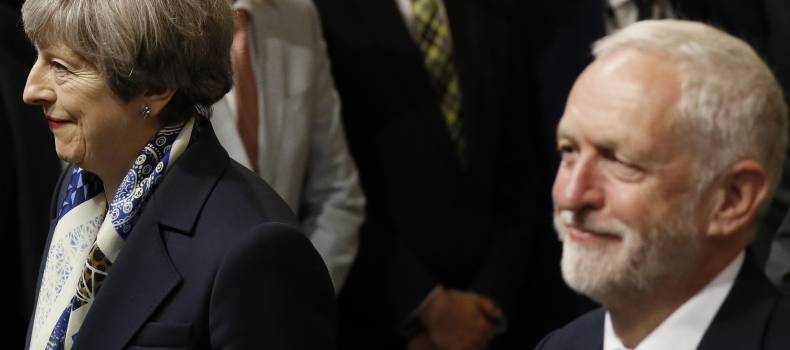by Ellie Tivey
It goes without saying that we are living in a deeply historical time. With the vote on Theresa May’s Brexit deal due this week, for 11th December, journalists are in the midst of a frenzied attempt to predict what comes next. The people themselves seem to be fluctuating between intrigue and completely disenfranchised exhaustion with the whole ordeal.
Opposition to May’s deal is possibly the most unifying display of British politics we’ve seen in years. All corners of the political spectrum have spoken out against her. She had three long days where a vote of no confidence was a distinctly viable possibility, and her right-hand man Michael Fallon has now also spoken out against her deal. Amid this chaos, the possibility of a TV debate between May and opposition leader, Jeremy Corbyn has arisen.

As I write this, the debate itself remains an elusive possibility for yet more political fiasco to play out on live television. Both May and Corbyn have stated they would be willing to take part but, if these two were boxers, we would still be at the painfully-staged-recycled-twitter-insults-reeking-of-fragile-masculinity stage. But with one public poll revealing that two-thirds of Brits want the debate to take place, it seems to be increasingly inevitable. The debate itself is set to have a focus on Brexit, a reasonable focal point given the political climate, which leads me to wonder – what exactly is Corbyn going to say?
I myself have been a staunch Labour supporter since the day I started taking an interest in politics. As with any other political party, some of their practices beg analysis and invite disdain (to put it mildly). But it is their core values that I naturally held before I even began my attempt to understand the complexities of Westminster, so they have had my vote thus far. And, along with many other young Labour supporters, when Corbyn burst onto the screen of mainstream politics in 2015 I was imbued with a deeply impassioned sense of idealism and excitement for the country’s future.
2016 was the year that I fell out of love with Jeremy Corbyn. His behaviour during the Brexit referendum instilled a distrust in him that I am yet to shake. This man whom I believed so dedicated, outspoken and staunch in his political views was largely silent. At a time when he had the ear of most of the young people in this country, he refrained from making his stance either clear or understandable. In retrospect, and given his previous voting history, it is apparent that some wily PR employee knew that he wanted to vote Leave, recognised that that would alienate his youth support, so instructed him to remain silent. He stuck to this blatantly obvious attempt to protect his political image over voicing his political view. And, thus, my perception of him as ‘genuine’ and ‘different’ to your typical Westminster slime-bucket, was shattered.
This context begs the question of what exactly Corbyn and May hope to achieve in this TV debate. May is a Remainer who is pretending to want Leave and has managed to disappoint basically everyone with her feeble negotiating efforts. Corbyn is a Leaver who opted for silence rather than publicly rejecting Remain. So what can this debate lead to other than yet more political facade, insincerity and non-truth to add to the ever-growing pile of drivel that’s been fed to the British public since 2016?
Ultimately, I fail to see the point of this debate. There are better, more sincere candidates for Brexit debates on Question Time than a televised debate between the leaders of the two biggest parties in the country. This fact may be a bitter pill to swallow, but it is emblematic of this government’s painfully obvious inadequacy in navigating Brexit as a whole. I have to admit that I am minimally hopeful that Corbyn may take the opportunity to shine light on the domestic issues that have suffered from Brexit being the central point of focus in Westminster. Other than that, I fail to see what else either Corbyn or May could contribute to the discussion at this point.
Ellie is a recent graduate in History and Politics from the University of Manchester. Originally from Bristol, Ellie moved to Manchester in 2015 and has no intention of leaving any time soon. She spent the final year of her degree as Editor of the university’s only historical publication, The Manchester Historian, and continues to present/produce weekly news videos for Manchester start up, Student Inspire Network. She has dreams of becoming a journalist and hopes to embed her passion for politics and popular culture in all of her work.


